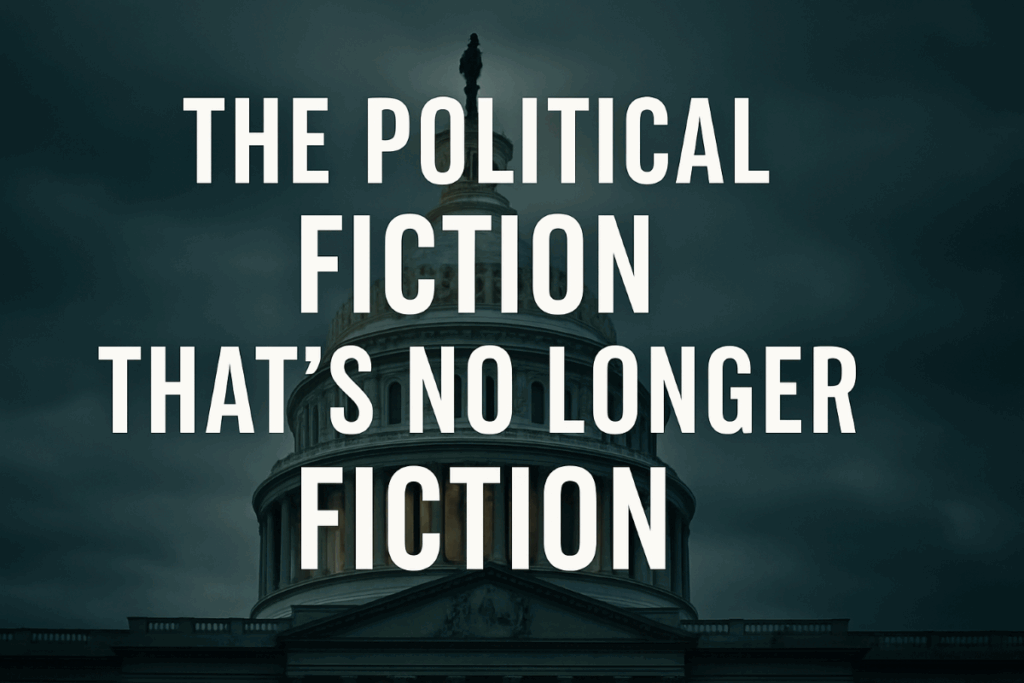The Point Where Political Fiction and Current Events Intersect
Political fiction and current events have become harder to separate. Writers invented imagined threats, exaggerated circumstances, and shadowy conspiracies to build stories that felt thrilling but safely distant. Meanwhile, real life continued with a slower, steadier rhythm. Governments had their flaws, but most people believed institutions would hold. The system might bend, but it was expected to self-correct, even under stress. That belief no longer feels certain.
The line between fiction and reality is harder to define. What once sounded like an outlandish plot twist now resembles today’s headlines. Political thrillers that once warned about what might happen now feel like reflections of what already has. It’s common to read a novel and find scenes that align almost exactly with recent news stories. The gap between what we imagine and what we experience has narrowed—sometimes to the point of disappearing.
Why Political Fiction and Current Events Are Hard to Separate
That’s the terrain The Unmaking of America explores. I didn’t write this book to predict what’s coming. I wrote it to follow trends already unfolding in public view. I saw the steady erosion of democratic norms and the growing use of tactics that, not long ago, would have sparked public outrage. The unchecked expansion of executive authority, the politicization of courts, and the use of targeted disinformation weren’t invented—they were already here. The only question was what would happen if they weren’t stopped.
In the world of The Unmaking of America, collapse doesn’t come in a single, dramatic moment. There is no war or widespread revolt. What happens instead is slow decay. Institutions don’t break apart all at once. They lose purpose. Systems of oversight weaken. Laws remain, but their enforcement becomes political. Politicians learn to exploit gray areas, and then they create more. What appears to be a functioning government continues—on the surface—but the core begins to shift.
None of this was added for drama. The story isn’t built on suspense. The fiction serves as a lens to help clarify what is already happening around us. When voter suppression becomes a normalized political tactic instead of a national scandal, the damage is already underway. When major media outlets replace investigative journalism with partisan alignment, public trust begins to fracture. And when large groups of people are written off as internal threats, political disagreement gives way to something more dangerous.
These are not hypothetical scenarios. They are things we have seen, particularly in the last several years. We’ve watched courts shift sharply in tone and philosophy. We’ve seen peaceful protests met with militarized police response. We’ve seen how quickly people grow accustomed to new forms of power, even when those forms erode rights that were once considered foundational. These trends are also being tracked by independent monitors such as Freedom House, which measures the health and decline of democratic institutions around the world.
The story in The Unmaking of America doesn’t revolve around a conspiracy. It doesn’t need one. The danger comes from decisions made in broad daylight—and the lack of collective response. What many thrillers miss is that authoritarianism rarely arrives overnight. It often emerges through ordinary legal channels. It uses familiar tools to reshape systems from the inside. It wears the appearance of legitimacy while pulling away the safeguards that hold institutions accountable.
When readers say the book feels too real, I take that as a signal that the story is doing what it should. The goal wasn’t to provoke for its own sake. It was to reflect the world as it is, not as we wish it to be. Political fiction and current events are no longer clearly separate. In this moment, the most important stories are the ones that don’t have to stretch the truth. They just follow it.
When fiction starts to feel like memory, it’s not a failure of imagination. It’s a warning we’ve already lived through—and may still be living in.

